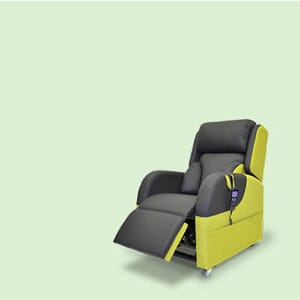Dementia is on the rise, with over 850,000 people reported to have dementia in the UK and is due to rise to 1 million by 2025, help and support to both carer and patient must be available. Premiere Healthcare has created a helpful resource to support carers including symptoms, successful measures to help potentially slow down the effects and what specialist chairs we can provide for dementia patients.
Symptoms
It is important to be made aware of any changes that can occur in someone with dementia. If you recognise any of these, please contact your GP as soon as possible:
- Memory loss
- Difficulty performing familiar tasks
- Language problems
- Disorientation
- Problems with keeping track of items or misplacing them
- Changes in mood or behaviour
Slow down the effects of Dementia
There is no treatment to stop dementia in its tracks and researchers are continuously working to try and find a cure, however, this area is desperately underfunded. Yet there are positive steps available to patients with a proven success rate in slowing down the disease progression and helping reduce the risk.
Here is what you can do
- Exercise – Regular activity can slow the effects down by a staggering 50%
- Diet – A healthy diet is a crucial element so look for a diet plan to follow
- Cognitive activities – Improve brain activity by learning, memorizing information or even doing a puzzle
- Socializing – Stimulate the emotional part of your brain by interacting with others. Join a group or a local class
- Sleep – Create a consistent sleep routine
Care for the Carer
Being a dementia patient carer can be hugely demanding both physically and mentally. A carer could be the family member, friend or even a neighbour. As most become carers as a result of a crisis there isn’t always time to prepare for the role. It is important to support yourself, and there are some excellent sources of support available. Either your GP or local council can provide a list of organisations who specialise in support packages.
How Premiere can help
Sitting comfortably is a necessity. It is important that the specialist chair is multi-adjustable to work with the patient as their needs will change be it cognitive or physical.
We recommend you consider the following factors when choosing the right chair:
- Gather all the patient’s clinical information to understand what their current needs are taking into account potential future deterioration
- Understand the patient’s personal needs, what do they like and feel comfortable with
- Be aware of their living environment – look at space, ease of access and suitability
- Complete a seating assessment with one of our team.









